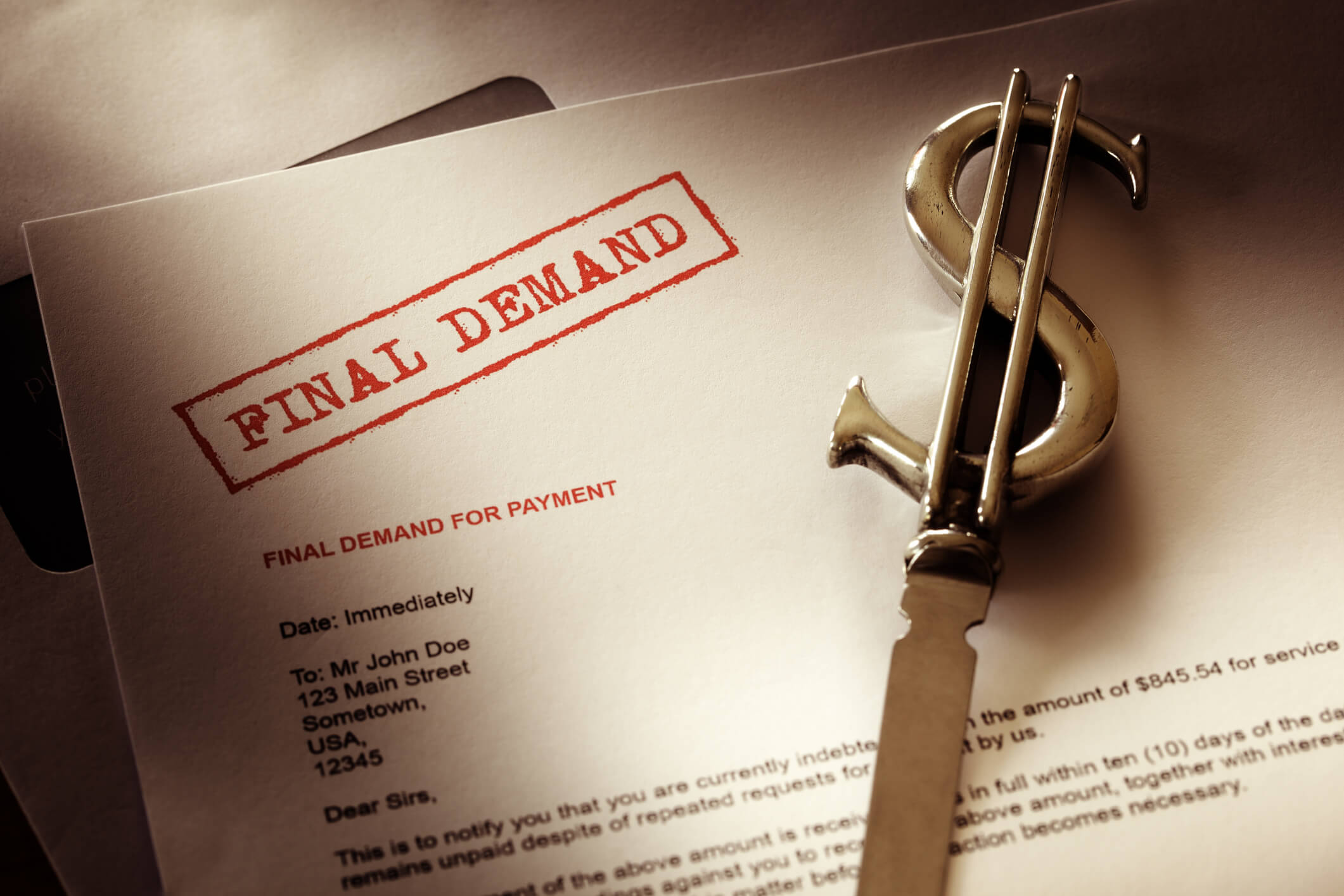If you are an average American wage earner and bill payer, chances are you have had to deal with debt collectors. The only way to stop the calls and pursuit of the debt is to pay the debt off. Paying off the debt will also improve your credit score and show future lenders that you are financially responsible.
Though you may have the desire to pay off debts, you may not have the income to do it. This issue is often the reason people dodge debt collectors. If you have debt collectors calling you, they will work with you more than you think. Here are three things you need to know about dealing with a debt collector.

Setting Up Payment Arrangements with a Debt Collector
Not all debt collectors will be open to payment arrangements; however, most will because they bought your debt, and if you don’t pay at all, that is a loss to them. Before you contact the debt collector, go on your credit report and see the amount of your debt and figure out the maximum amount you can pay and over what period you can pay it. When you approach the debt collector, make an offer that is slightly lower than your maximum, so you have some room for negotiation.
When you reach your limit, you must let them know it is your best and final. Most collectors will work with you because they want to recover the money. If you don’t have the money to pay and don’t make an arrangement, they are chancing no recovery.
You will have to act quickly because most debt collectors don’t hold a debt beyond six months. Waiting can go one of two ways; they will increase the payments or give you a write-off amount. Either way acting quickly once a debt collector has taken the debt over will get the debt cleared and work at repairing your credit before making any payment arrangement. Ask if there is a write-off amount. This amount is generally a lump sum that is significantly discounted if you can pay all at once and get the debt out of the way.

Payment Arrangements and the Statute of Limitations
Debt collectors have the right to sue you for the amount. Before you make a payment arrangement, you want to take a few steps not to waste your time. First, you need to verify the debt is yours. If it is erroneously on your credit report, you need to dispute it, and if you are successful, it will remove your responsibility.
The other thing you need to check is the statute of limitations in which the debt collector can sue you. This can vary from state to state. If you are past the seven years, and it is not on your credit, and the statute of limitations has run out, do not make a payment. Making a payment starts the statute of limitations over, and if it is no longer on your credit, there is no reason to add the liability.
However, if it is on your credit or within the statute of limitations, you need to immediately pay it off. If a suit is filed, that could be significantly more expensive than the debt itself. So you will need to make a payment plan or find out the write-off amount.

When the Collector Won’t Accept
In the rare case in which the debt collector won’t accept a payment arrangement or offer a write-off amount, you will have to resort to plan B. Find out when the debt has to be paid off before they may file suit and start setting aside the money you would have used towards the payment plan until you can pay the amount in full. Rarely, the debt collector won’t work with you as most people make no effort to pay after it goes into collection.
The main thing is that you want to avoid a lawsuit if they decide to file one. In most cases, if the debt is low, they will write it off. However, if the debt is significant, they will generally file a suit, which can be costly. If you face a lawsuit, you may want to try getting a loan or assistance with debt consolidation to avoid litigation.
 About Complete Controller® – America’s Bookkeeping Experts Complete Controller is the Nation’s Leader in virtual bookkeeping, providing service to businesses and households alike. Utilizing Complete Controller’s technology, clients gain access to a cloud-hosted desktop where their entire team and tax accountant may access the QuickBooks™️ file, critical financial documents, and back-office tools in an efficient and secure environment. Complete Controller’s team of certified US-based accounting professionals provide bookkeeping, record storage, performance reporting, and controller services including training, cash-flow management, budgeting and forecasting, process and controls advisement, and bill-pay. With flat-rate service plans, Complete Controller is the most cost-effective expert accounting solution for business, family-office, trusts, and households of any size or complexity.
About Complete Controller® – America’s Bookkeeping Experts Complete Controller is the Nation’s Leader in virtual bookkeeping, providing service to businesses and households alike. Utilizing Complete Controller’s technology, clients gain access to a cloud-hosted desktop where their entire team and tax accountant may access the QuickBooks™️ file, critical financial documents, and back-office tools in an efficient and secure environment. Complete Controller’s team of certified US-based accounting professionals provide bookkeeping, record storage, performance reporting, and controller services including training, cash-flow management, budgeting and forecasting, process and controls advisement, and bill-pay. With flat-rate service plans, Complete Controller is the most cost-effective expert accounting solution for business, family-office, trusts, and households of any size or complexity.




